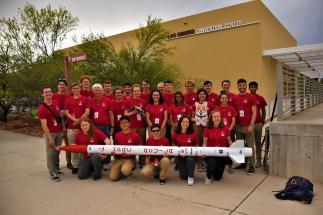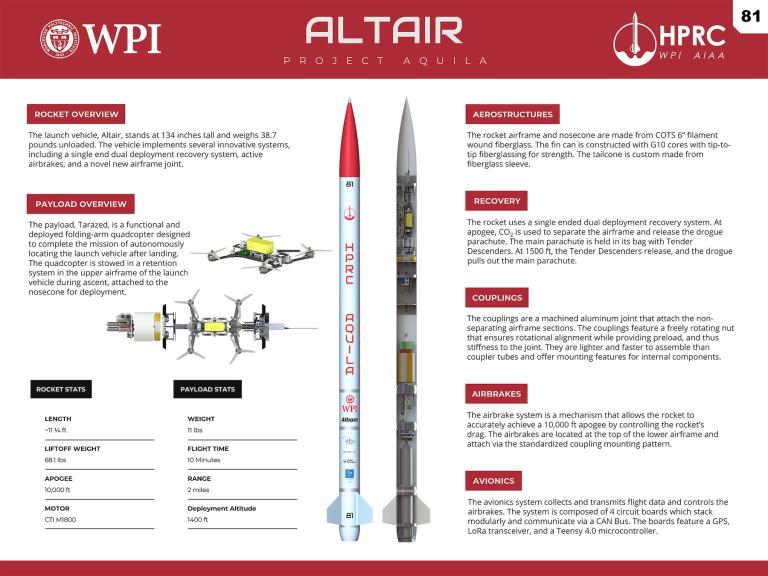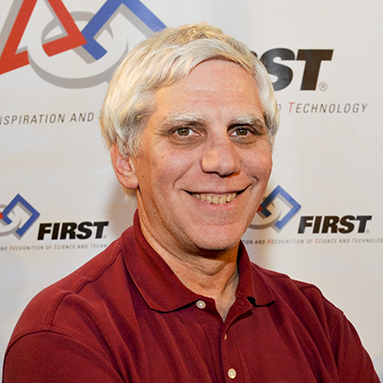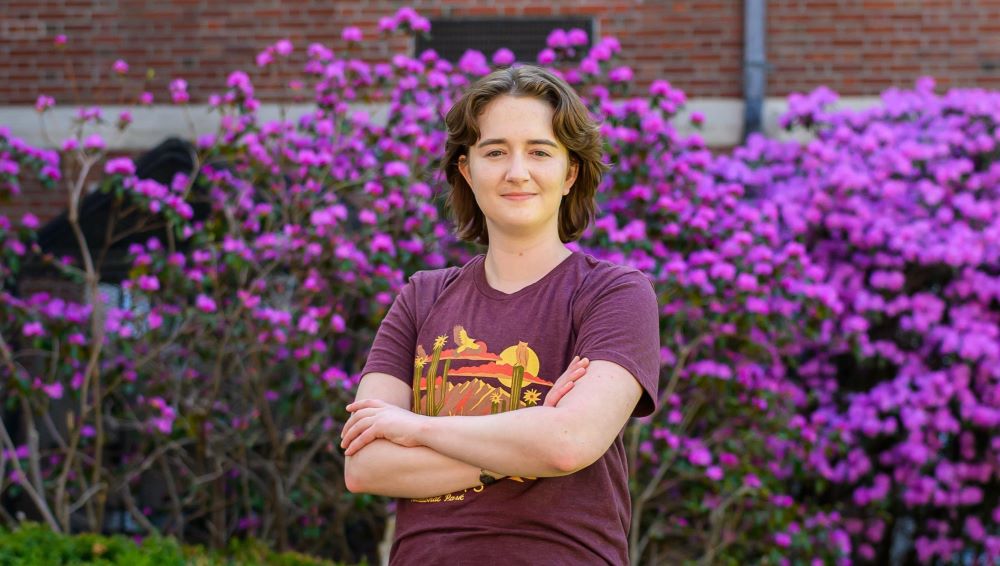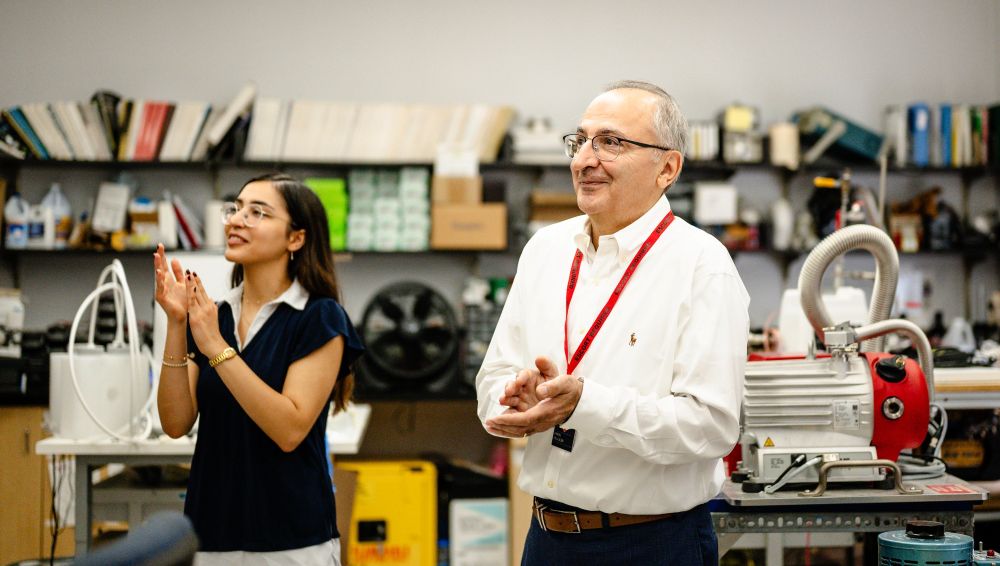WPI’s team worked throughout the school year on the mostly scratch-built rocket, replicating the systems approach, collaborative work environment, and testing that graduates might experience working for a rocket design and manufacturing company. Design and computer software work started in A term, and by D term the team was integrating all the different subsystems.
Testing the rocket proved tricky; the team was only able to test various components using existing rockets, so its inaugural launch would be in competition. Brad Miller, associate director of the Robotics Resource Center, who advised the team for the competition said bringing a rocket that had not been fully tested was a tall order, but the students nearly pulled it off. So much had to go right—from proper deployment of the rocket’s air brake system to nailing the algorithms that controlled its trajectory—and it very nearly did.
“If you look at the level of work they’re doing, they’re solving really hard problems,” Miller said. “They’re not just going out and buying a hobby rocket.”
Miller said as soon as the rocket failed, everyone on the team immediately turned to doing failure analysis.
“They retrieved the rocket, got the flash cards, looked at the telemetry. They were figuring out graphs, coming up with all these theories. I can imagine other teams that had their rocket blow up at 3,500 feet would have just thrown in the towel. This team turned around and did a ton of work to find out what happened. I couldn’t be more proud of these students representing WPI.”
Sportsmanship award recognized efforts
Throughout the competition, the WPI team offered help to other teams; Schultz said that with some epoxy, fiberglass, a heat gun and some ideas, they helped the Duke University squad solve a problem and stay in the competition, where Duke placed quite well. And even after the WPI students’ rocket exploded, they helped other entrants retrieve their rockets, and even helped direct first responders to the site of one that had caught fire after it came down.
The team’s efforts didn’t go unnoticed, and garnered WPI the annual sportsmanship award.
“We all worked so much together on this rocket, and a lot of times we’re friends from other classes and other projects,” Schultz said. “We’re always working together, always collaborating, always talking together, working through the sticky situations. I think it spilled over into this competition.”
